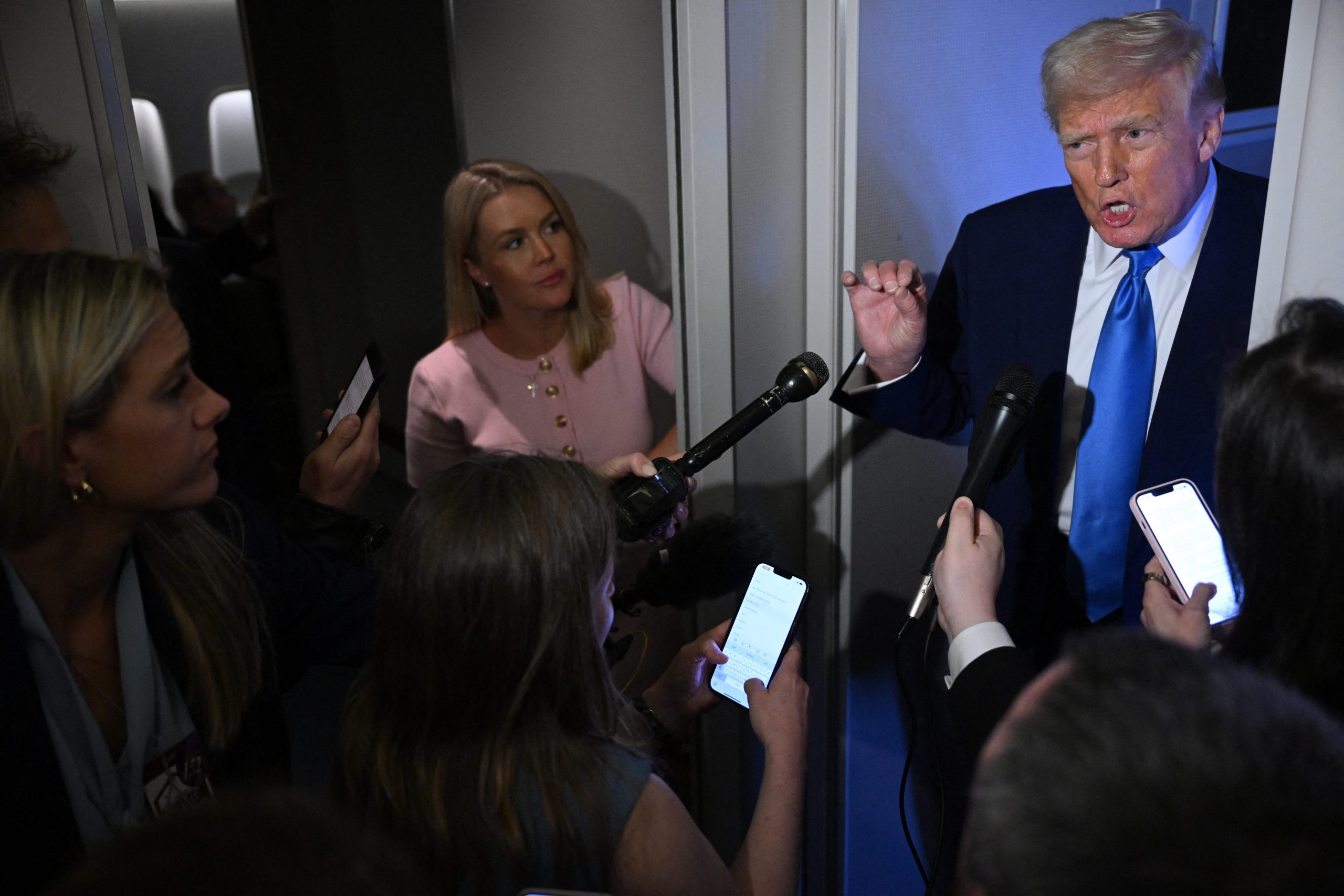In the latest switch-up in the rollercoaster of events that have followed the April 2 announcement of President Donald Trump’s “reciprocal” tariffs, the Trump Administration has said that some electronics will be exempt from these tariffs.
A notice from the U.S. Customs and Border Protection (CBP), posted late on Friday night, stated that certain electronic devices will be exempt—including smartphones, laptops, hard drives, flat-panel monitors, and machines used to make semiconductors and some chips. The notice said that the exemption applies to products entering the United States or removed from warehouses dating back to April 5.
[time-brightcove not-tgx=”true”]
This means these products can now bypass the significantly high “reciprocal” tariffs on China, where Apple has manufactured most of its iPhones since the first model hit the market 18 years ago. However, as Stephen Miller, Trump’s Deputy Chief of Staff for Policy, pointed out on X on Saturday, these electronics are still “subject to the tariff under the original IEEPA on China of 20 percent.”
The tariffs would likely have made a large impact on the purchase of electronics, and by extension, on tech giants such as Apple, Microsoft, Nvidia and Samsung, as many of their supply chains are based in China and other countries outside of the U.S. Some experts estimated that with the tariffs, and before the exemption, the iPhone could have cost thousands more for U.S. consumers, especially if made in the U.S.
Trump has previously encouraged tech giants to move their companies and manufacturing to the U.S., and referenced Apple’s February announcement that it plans to invest $500 billion in the U.S. in the next four years.
In a Truth Social post on April 9, Trump said: “This is a GREAT time to move your COMPANY into the United States of America, like Apple, and so many others, in record numbers, are doing. ZERO TARIFFS, and almost immediate Electrical/Energy hook ups and approvals. No Environmental Delays. DON’T WAIT, DO IT NOW!”
However, as the Washington Post notes, Apple has a complex system that extends beyond the U.S. While their iPhones are designed in California, they are assembled in China and India, with parts sourced from various suppliers.
The notice about exemptions comes after Trump reportedly teased the idea while talking to reporters aboard Air Force One on Friday. “There could be a couple of exceptions for obvious reasons, but I would say 10% is a floor,” said Trump. He did not specify what those reasons were.
Experts have been concerned about how Trump’s tariffs would impact consumers as prices are expected to rise. It’s worth noting that China was the second-largest supplier of U.S. goods in 2024, according to U.S. Census Bureau data. (Mexico was the top source of U.S. imports.) China is especially known for supplying broadcasting equipment and computers to the U.S.
The exemption move is the latest change in Trump’s tariffs plan. U.S. and global stocks tanked, prompting fears of a recession, after Trump announced what he refers to as “reciprocal” tariffs on April 2, a day he coined “Liberation Day.” However, on April 9, Trump announced a 90-day pause for most of the “reciprocal” tariffs, with the exception of China, who were hit with much higher import taxes. The tariffs on China now total 145%—a 125% “reciprocal” tariff and a 20% tariff on most goods, as a punishment for the flow of fentanyl into the United States. China has since hit back at the U.S., raising the tariffs on American goods to 125%.

